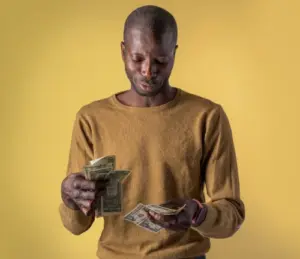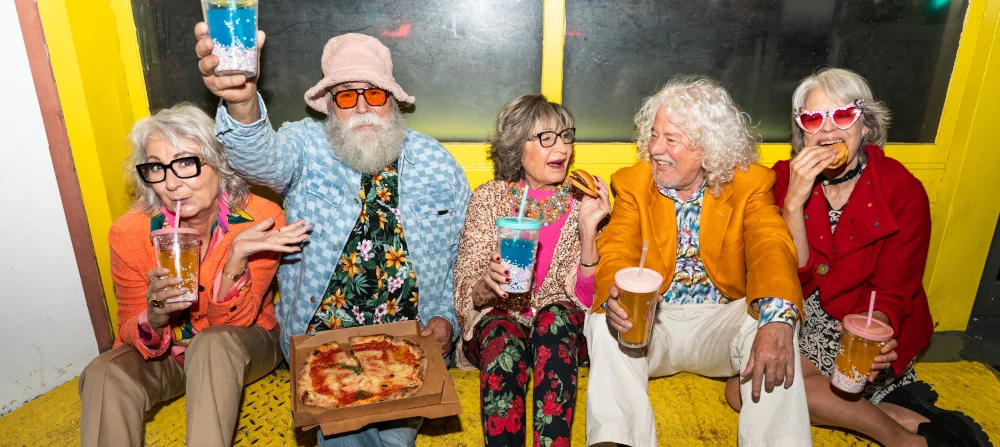
He says he doesn’t remember much about 1996. Says it with a laugh, the kind that makes it sound like a joke, even though you know it isn’t. He’ll offer up fragments instead. Things like who won the league that year. Where he used to stand at the taxi rank. A song that played too much on the radio. The details are sharp in places, smudged in others, like a photo that’s been left too long in the sun. You press him, gently, the way you would someone nursing a limp. He shrugs. “It was just work. Just trying to survive.”
But that year meant something. You can feel it in how quickly he closes the door behind it. That was the year the flags were still fresh, when hope moved like heat off the pavement, and everyone thought everything was going to change. For some, it did. For others, it didn’t change fast enough. Your uncle was somewhere in between. Not quite winning, not quite failing. Just moving. Like everyone else, he went where the work was.
He left home that year with a bag that wasn’t zipped properly and R80 in a sock. His mother cried. His younger brother tried to copy him. He wore his best shirt for the taxi ride, even though it would be ruined by sweat and smoke before they reached Germiston. He didn’t have a plan. Just a number someone scribbled on the back of a matchbox. A cousin who said there might be space at the bakery. A rumour about a construction site that needed strong hands and men who didn’t ask questions.
No one told him that even dreams were expensive in Joburg. That rent could eat your whole week. That sharing a bed with a stranger wasn’t a crisis, it was standard. He says those first few months taught him how to disappear. How to move between bus stops without drawing attention. How to eat slowly so the hunger didn’t come back too fast. How to send money home, even if it meant he walked instead of riding.
There’s a photograph of him somewhere from that time. Skinny, serious, shoulders stiff like he still wasn’t used to standing still. Behind him, the skyline blurs into dust. In the photo, he looks like someone pretending to be older than he is. Because at 21, when you’re supporting four people back home, age becomes something you perform.
He doesn’t talk about the men he lived with in those rooms with the broken latches and the stolen electricity. He doesn’t mention how loud the coughing got when winter came. Or the fights over maize meal. Or the look on a man’s face when his payslip didn’t match what he was promised. He doesn’t say much about that time, because to speak of it would be to admit how close the edge really was.
The stories he does share come dressed in humour. The time he lost his shoe chasing a dog through a factory fence. The Sunday when a church woman made him a plate without asking his name. The day he nearly fainted from dehydration and his friend gave him half a Fanta and said, “Don’t die today, please.” But you know these are stand-ins. Placeholders for what he won’t say.
 He stayed in the city for five years. Long enough to start building a life, but not long enough to forget who he left behind. Every December, he went home with second-hand toys and knock-off cologne. People called him “Joburg.” Kids watched him like a visitor from a different planet. The taxi ride back always hurt more than the first one. Because by then he knew exactly what he was leaving, and exactly what he was going back to.
He stayed in the city for five years. Long enough to start building a life, but not long enough to forget who he left behind. Every December, he went home with second-hand toys and knock-off cologne. People called him “Joburg.” Kids watched him like a visitor from a different planet. The taxi ride back always hurt more than the first one. Because by then he knew exactly what he was leaving, and exactly what he was going back to.
By 2002, he’d saved enough to put a deposit on a small car. Not a new one. A hatchback that coughed every time it reversed. He used it to deliver things. Furniture. Bread. Sometimes people. That was how he met your aunt. She needed a lift. He charged her less than he charged the others. He still says she never paid the full fare. She says he never asked.
They built slow. No big wedding. No honeymoon. Just a couch bought on layby and curtains sewn by her sister. He never stopped working. Just changed how he did it. For a while, it was taxi logistics. Then satellite dishes. For a few months, he ran a small lounge with EBT machines, slots, really, but quieter, more discreet. He liked the way they gave people hope, even if it was just in R5 spins. He never gambled himself, but he’d watch others with a kind of empathy. Not judging. Just understanding.
He taught you how to keep receipts. How to fix a plug. How to read people’s hands when they were lying. He said things like, “Money is loud when it’s temporary,” and “Don’t stay too long where you’re not learning.” He never talked politics. Not in front of the children. Not even when the radio screamed headlines. But when you turned 18 and asked him what democracy meant to him, he looked at you for a long time and said, “It means I never had to bury any of my friends. That’s enough.”
Now, when he walks through the township, people still greet him with respect. He nods but never lingers. You can tell he doesn’t like to be looked at too closely. Like there’s something fragile still holding him together. Maybe it’s memory. Maybe it’s the weight of everything he didn’t say in 1996. Maybe it’s the simple fact that surviving something doesn’t mean you want to remember it.
He watches his children sleep with a kind of reverence. He buys them school shoes in October, just to be safe. He drives them to the clinic when they’re sick, stays in the waiting room even though he hates the smell. He never says he loves them. He just shows up. That’s the kind of man he became. The kind who builds silently. Who sacrifices without announcement.
And maybe that’s why he doesn’t talk about 1996. Not because he forgot it. But because he lived it so fully, so completely, there’s nothing left to say. The silence is his archive. His testimony. And if you listen closely enough, it tells you everything.







